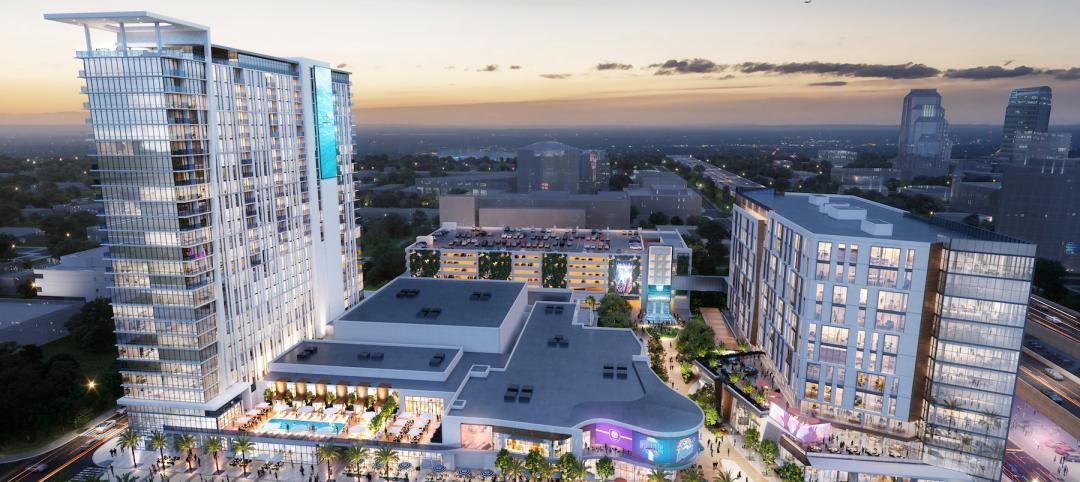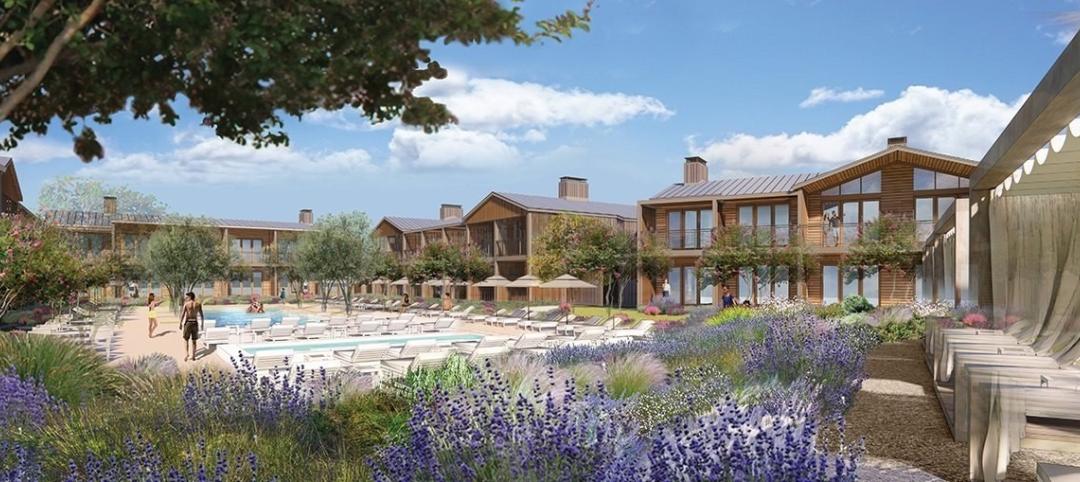Since entering the hospitality scene in 2008, Airbnb has evolved from a trendy upstart to a full-on disruptor. The online marketplace now enables people to list, discover, and book accommodations in nearly 200 countries around the world.
This new kid on the hospitality block is actually an extension of a long-standing tradition of lodging alternatives that range from renting villas in Italy to choosing timeshare properties in Florida.
“Airbnb is taking what has always been out there, localizing it, and bringing properties together in a way that provides a streamlined alternative for travelers,” says Nunzio DeSantis, FAIA, LEED AP, Director of the HKS Hospitality Group in Dallas.
Though Airbnb’s home-sharing units represent less than 3% of revenue in the overall hotel industry, the online marketplace continues to grow exponentially each year. And the hospitality industry can’t help but take notice.
“As in any industry, choice often compels people to make changes and to stop taking things for granted,” says Keith Simmel, AIA, LEED AP, Principal of the Hospitality Studio at Cooper Carry in Atlanta. “If Airbnb helps hotel brands to up their game and make decisions that help people land at their properties, then it’s ultimately good for the overall industry.”
No doubt, Airbnb—and the numerous variations it has spawned—is well positioned to attract future generations of business and leisure travelers.
“People are willing to embrace the messiness of an Airbnb because they’re getting a more flexible, locally relevant experience,” says Caleb Mulvena, Principal at Mapos in New York. “If the larger hotel players can tap into that sense of messiness and adventure, but layer on a level of service that you don’t necessarily get with Airbnb, that will be something that’s really powerful.”
Related Stories
Smart Buildings | Jul 25, 2024
A Swiss startup devises an intelligent photovoltaic façade that tracks and moves with the sun
Zurich Soft Robotics says Solskin can reduce building energy consumption by up to 80% while producing up to 40% more electricity than comparable façade systems.
Adaptive Reuse | Jun 13, 2024
4 ways to transform old buildings into modern assets
As cities grow, their office inventories remain largely stagnant. Yet despite changes to the market—including the impact of hybrid work—opportunities still exist. Enter: “Midlife Metamorphosis.”
Adaptive Reuse | May 9, 2024
Hotels now account for over one-third of adaptive reuse projects
For the first time ever, hotel to apartment conversion projects have overtaken office-to-residential conversions.
Adaptive Reuse | Apr 29, 2024
6 characteristics of a successful adaptive reuse conversion
In the continuous battle against housing shortages and the surplus of vacant buildings, developers are turning their attention to the viability of adaptive reuse for their properties.
Hotel Facilities | Apr 24, 2024
The U.S. hotel construction market sees record highs in the first quarter of 2024
As seen in the Q1 2024 U.S. Hotel Construction Pipeline Trend Report from Lodging Econometrics (LE), at the end of the first quarter, there are 6,065 projects with 702,990 rooms in the pipeline. This new all-time high represents a 9% year-over-year (YOY) increase in projects and a 7% YOY increase in rooms compared to last year.
Mixed-Use | Apr 23, 2024
A sports entertainment district is approved for downtown Orlando
This $500 million mixed-use development will take up nearly nine blocks.
Hotel Facilities | Apr 17, 2024
Will the surge in hotel construction carry resorts with it?
The resort corner of the hospitality sector has been a bit slower to expand than the whole for the past few years. But don’t tell that to Bill Wilhelm, President of R.D. Olson Construction.
Sponsored | Hotel Facilities | Apr 8, 2024
The Rise of Mobile Keys in Hospitality
Unlocking the future of hospitality—mobile keys are transforming the guest experience and streamlining hotel ops.
Adaptive Reuse | Mar 30, 2024
Hotel vs. office: Different challenges in commercial to residential conversions
In the midst of a national housing shortage, developers are examining the viability of commercial to residential conversions as a solution to both problems.
Adaptive Reuse | Mar 26, 2024
Adaptive Reuse Scorecard released to help developers assess project viability
Lamar Johnson Collaborative announced the debut of the firm’s Adaptive Reuse Scorecard, a proprietary methodology to quickly analyze the viability of converting buildings to other uses.

















